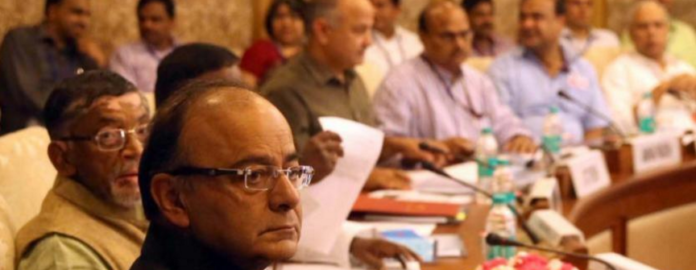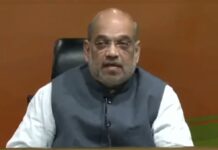Today Finance Minister Arun Jaitley emphasized the urgency to pass the Goods and Service Tax (GST) laws during the current session of Parliament. He said that it should be implemented as soon as possible otherwise Centre and the states will lose their right to collect indirect taxes after 15th September. Finance Minister also said in the Rajya Sabha that the government is keen to roll out the GST on 1st July and other aspects like land and bringing petroleum under its ambit will be considered after the first year of implementation of the new law of indirect tax collection.
Following this, the Centre Government will abolish 16 surcharges and cesses on union excise and service tax as it lays down the path for rolling out the (GST) from the month of July. The amendments in this Act, 1962, allow furnishing of all the information relating to import- export of goods by specified persons to enable detection and analysis of cases of under- over-valuation in imports and exports. Krishi Kalyan and Swachh Bharat cesses are included in this list, which will lead to a loss of about Rs 65 thousand crores by the exchequer. The government will have to find resources from the budget to make up for this loss.
Arun Jaitley said that 4 bills supporting the Constitution amendment law on GST will be introduced in the Lok Sabha shortly, which was enacted last year. According to him to meet the September 15 deadline for switching over to the new indirect tax regime, these have to be passed in this session. The ongoing Budget session will be ended on April 12. He said that the GST Amendment Bill does not provide for the extension of the deadline beyond September 15 this year for the transition. The govt’s legal entitlement for the collection of taxes will end, if GST is not implemented by September 15.
The government is hoping the best for the collection of taxes. The center is hoping that some of the resources will come from higher GST mop-up as more entities will enter into the tax net. Centre and the states are yet to finalize GST rates but it is not clear if consumers eating in restaurants or paying phone bills will be better off or worse after cesses and surcharges are abolished. The GST Council has decided to levy the cess on tobacco.
Last week, the Cabinet had cleared 4 legislations for implementing Goods and service Tax (GST) as the govt sprints to launch schedule of the indirect tax reform before July 1 can add up to two per cent to India’s economic growth.
The decision to change with existing cesses came along with the cabinet approval for amendments to the Customs Tariff Act, the Customs Act, and Central Excise Act. Finance Minister said India has “hugely” a non-tax compliant society and the Govt’s demonetization to curb the tendency of people to deal in cash which will lead to tax evasion.




